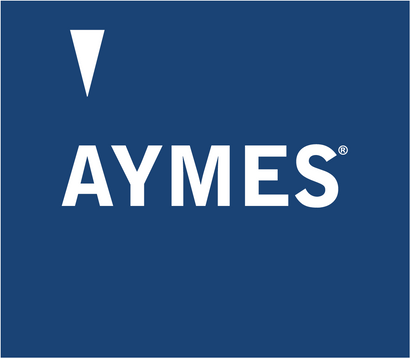
AYMES wishes to congratulate final year student dietitians across the country for successfully completing their nutrition and dietetic degrees this summer. Students may have faced additional challenges during the recent global coronavirus pandemic, and you can learn more about how university dietetic courses are responding to the situationhere. This blog post, which draws on advice from fellow Registered Dietitians, provides some insight into the interesting and varied career options available to newly qualified Registered Dietitians.
Clinical Dietetics - NHS
Many newly qualified dietitians will choose to embark on a clinical dietetics career within the NHS. Entrance level dietetics jobs within the NHS are usually advertised as Band 5 Dietitian jobs. You can search for and apply for Band 5 dietetic posts on theNHS jobs website, although you may need to have registered with the HCPC (Health and Care Professions Council) before applying. Once registered with the HCPC, dietitians are required to meet thestandards of proficiency that are required for their scope of practice.
Here are some things to consider:
- Do you want a rotational or fixed position?
- Do you want to work in an acute or community setting?
- Do you have specific clinical interests?
- Which locations would you like to work in?
- Do you want to work in a teaching hospital?
- Does the job description interest you?
- Do you meet the person specification?
- Are there opportunities for career progression?
Clinical Dietetics - Freelancing
There are over 400 freelance dietitians in the UK. Freelance dietitians are typically self-employed, which means that they work as independent contractors and earn income by working with businesses or patients directly. Freelance dietitians have a broad range of skills and specialist interests, with many working one-to-one in private practice. Freelance dietitians may offer a range of additional services such as writing, product development and public speaking.
Patients who wish to see a private practice (freelance) dietitian will need to self-fund or cover the costs of the consultation using their health insurance. Freelance Dietitians can register as private practice dietitians with the main UK health insurance companies such as BUPA and AXA. If you choose to work as a Freelance Dietitian, you may wish to consider joining the British Dietetic Association (BDA)Freelance Specialist Group. The majority of freelance dietitians will have gained some NHS clinical experience before working in the private sector.
Academia
Dietetics is an evidence-based profession; it is important that dietitians actively engage with academia and clinical research. Many dietitians successfully combine careers in clinical dietetics (NHS or private practice) with part-time clinical research. Check with your employer to see which research opportunities are available to you.
You can find out about UK PhD opportunities here. Alternatively, you could follow clinical researchers on social media to hear about latest opportunities. Here are a few dietitians who regularly post about career opportunities in academia:
- Professor Kevin Whelan, Professor of Dietetics and Head of Department of Nutritional Sciences at King's College London (twitter: @ProfWhelan)
- Dr Stacey Jones, Curriculum Change Lead within the Curriculum 2025 team and doctoral researcher in Sarcopenia (LinkedIn)
- Dr Brian Power, Registered Dietitian and Academic (Twitter: @brianpowerRD)
Industry
Dietitians are well-placed to work within the food and nutrition industry due to their thorough grounding in nutrition sciences and clinical experience. You can read about our Registered Dietitian Gemma Fry’s experiences of working within the medical nutrition industryhere. Whilst writing this blog post, we came across dietitians working for apps, weight loss programmes, food manufacturers, pharmaceutical companies, supermarkets and even airlines. If this interests you, we recommend joining the organisation ‘Nutritionists in Industry’ for more information. You could also connect with other dietitians working for industry on social media platforms such as LinkedIn to network and learn from one another.
Communications
PR and communications companies may employ or contract Registered Dietitians to advise on their nutrition communications strategy. Food and nutrition companies are tightly regulated by industry regulations and their messaging must be evidence-based and compliant with legislation. Dietitians are skilled at communicating complex science to different audiences in a clear, compliant and evidence-based way. Some of the larger PR and communications firms (i.e. Porter Novelli and Edelman) offer internships within their health teams. Keep an eye out on their website for further information.
Food Service and Catering
Corporate catering companies for schools, businesses and hospitals often employ Registered Dietitians as ‘Catering Dietitians’. As an example, the dietitian may be involved with menu development, nutritional analysis, special diets and liaising with other members of staff and consumers. They also play an important role in keeping nutrition and health high up on the agenda, running audits and ensuring that the food meets necessary standards. Companies such as Sodexo, Compass Group and Mitie frequently recruit Registered Dietitians.
Putting it All Together
A dietetics degree opens up many different avenues, but there’s no need to have it all mapped out right away. Take some time to reflect on your unique skills, interests and passions and identify which areas of dietetics you’d like to work for. Networking is a useful way of finding out about different career options from other dietitians - why not connect with other like-minded Dietitians on social media platforms such as Twitter and LinkedIn. Remember that your career will evolve over time; you may well find yourself working across different sectors and industries. There are also plenty of other options available which we haven’t touched upon within this article. For example, dietitians can work in public health, charitable organisations, professional associations (i.e. the British Dietetic Association) as well as working overseas as a private practitioner or an independent consultant (check that your BDA indemnity insurance covers you) and even in the military. On behalf of AYMES, we wish you the best of luck!



